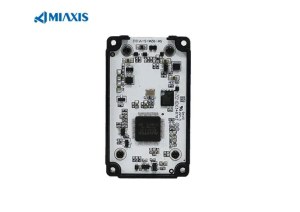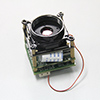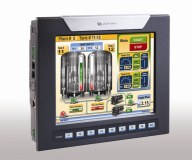A biometric fingerprint module is a compact and secure device used for capturing and processing fingerprint images. It includes a sensor for capturing fingerprints and an embedded processor for image processing, feature extraction, and matching. These modules are widely used in security systems, access control systems, and identification applications due to their high accuracy and reliability.
WHAT ARE THE USES OF A FINGERPRINT MODULE?
Access Control: They can be used in buildings, offices, or secure areas where access needs to be controlled and restricted to authorized individuals.
Time and Attendance Systems: Businesses often use fingerprint modules to track employee attendance accurately, eliminating the possibility of 'buddy punching'.
Law Enforcement: Police and other law enforcement agencies use fingerprint modules for criminal identification and background checks.
Personal Devices: Many smartphones, laptops, and other personal devices now come with built-in fingerprint modules for secure and convenient user authentication.
Banking and Financial Services: Fingerprint modules are used in ATMs and other banking applications for secure customer authentication.
Healthcare: In healthcare settings, fingerprint modules can be used to accurately identify patients and ensure that medical records are correctly matched to the right individual.
HOW ACCURATE IS A FINGERPRINT MODULE?
Fingerprint biometric modules are generally highly accurate due to the unique nature of fingerprints. Each individual has unique fingerprints with distinct ridge patterns and minutiae points (specific points of interest in a fingerprint, like where ridges split or end).
The accuracy of a finger print scanner module depends on the quality of the sensor and the algorithm used to compare the fingerprints. High-quality sensors can capture high-resolution images, which allow for more detailed comparison and thus higher accuracy. The algorithm used to compare the fingerprints also plays a crucial role in the accuracy of the system.
However, it's important to note that while the chances of false matches (different individuals fingerprints being identified as a match) are extremely low, they are not zero. The system's accuracy can also be affected by factors such as dirty or worn-out sensors, poor quality or partial fingerprints, and environmental conditions.
In terms of numbers, many fingerprint systems claim to have a False Acceptance Rate (FAR) - the likelihood that the system incorrectly accepts an access attempt by an unauthorized user - of less than 0.001%. The False Rejection Rate (FRR) - the likelihood that the system incorrectly rejects an access attempt by an authorized user - can vary more, but is typically kept low to ensure user convenience.
If you are looking for a reliable biometric machine company, please choose us, and we will be your best partner.
Ubicación : 5 Floor, Science&technology Building,East software park, No.90, Wensan RD,Hangzhou,310012,China, 310012 Hangzhou,
Persona a contactar : MIAXIS MIAXIS, 0571 89986377








